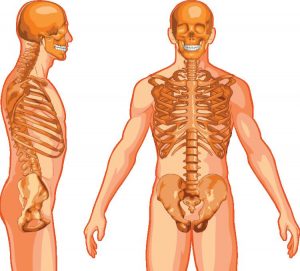Vitamin K2 the Calcium Traffic Cop

© PixelRockstar.com
You may never have heard of Vitamin K2, but it’s one nutrient which could make a great deal of difference in your life. Unfortunately, most of us don’t get enough Vitamin K2 because dairy products no longer come from contented cows munching green grass under a brilliant sun, despite ads that would have us believe this happy tale. And eggs don’t come from chickens cavorting in the sunshine either. In the days of small-family farms, dairy products and eggs were the most reliable sources of K2. Nowadays, there is still one reliable and even vegan source of Vitamin K2, and that’s natto, a Japanese fermented soy product. But I bet you’ve not heard of that either.
Thus most people would benefit from Vitamin K2 supplements, because this hormone-like substance affects so much in our body, and it is no longer easily obtained in our usual diet – unless you are a fan of soy natto. (We got our Nattomoto bacterial culture directly from Japan and have been making our own. Andy (my hubby) seems to think it tastes and smells as bad as reported, but I think it’s quite good. Reminds me a bit of a cheesy taste. More on that later.)
A lot of people may have heard of Vitamin K1 (generally just referred to as “Vitamin K”) and know that it’s plentiful in green vegetables. But how many have ever heard of its vital sibling, Vitamin K2? Since I had heard that Vitamin K2 was crucial for preventing osteoporosis, I was intrigued by the title, Vitamin K2 And The Calcium Paradox: How a Little-Known Vitamin Could Save Your Life.[2. We originally bought this in Kindle format but then purchased a paper copy to lend out. If you see us regularly, we’d be happy to lend it to you.]
Andy, my hubby, read it before I did, since I purchased the Kindle version and shared it with him on his tablet, and he insisted we both start taking Vitamin K2 supplements right away. Here’s why: Vitamin K2 deficiency is nearly universal in the developed nations, and the author explains why.
Vitamin K2 or menaquinone (both the MK-4 and MK-7 versions) can:
- Decrease bone loss in menopausal women. Dr Neil Nedley actually reported reversal of osteoporosis with high doses of Vitamin K in one of his posts – something that was previously thought to be impossible – but he gave few details. However, it now appears that Vitamin K2 can, indeed, reverse osteopenia and osteoporosis. (Since the conditions take a long time to develop, expect reversal to take time.) In this book, the author Kate Rheaume-Bleue, a naturopathic doctor, explains just how and why Vitamin K2 works in this way, with footnotes to clinical studies. (An important point for me, since my mother’s bones were literally paper-thin before she died – possibly from Coumadin/Warfarin blood-thinning medication which directly opposed the bone-building effects of Vitamin K.)Essentially Vitamin K2 controls the way calcium is utilized in the body. (Supplementing with calcium without Vitamin K2 potentially does more harm than good as calcium may be deposited in soft tissues, including veins and arteries and thus can increase the risk of heart attack and strokes.)
- K2 contributes to removing calcified plaque in the arteries and wherever else it may be found. (Some heart valve insufficiency can be the result of calcified nodules obstructing the proper function of the valves.) Significant results are evident in as little as 6 weeks of supplementation. (Hint: Get some lab work done to evaluate your condition before beginning supplementation, and go back after 6 weeks of supplementation for another evaluation.)
- K2 stimulates the production of insulin and reverses insulin insensitivity, thus combating diabetes. (That one’s important to me, since my father had diabetes, and I’m borderline.) Oh, and in conjunction with Vitamin D, K2 can help prevent facilitate weight loss. So that’s why I’ve been able to lose a little weight!
- According to p. 223 of the book, studies demonstrate “an inverse association between vitamin K2 intake and the two biggest cancer killers of men, lung and prostate cancer.” (I think that got Andy’s attention, because the cancer that killed his father started out as prostate cancer.)
- There’s a whole chapter on “Vitamin K2: The Ultimate Antiaging Vitamin.” (Hey, at our age that sounds good – providing it’s more than old wives’ tales. And the author demonstrates exactly why Vitamin K2 combats the effects of old age, with references you can check out for yourself.)
- Since Vitamin K2 works more like a hormone than a normal “vitamin,” its effects on our health are broad. For instance, it fights cancer and is quite specific against leukemia – causing cancer cells to either die or differentiate. (Cancer results from cells multiplying without differentiation.) It’s important for women of child-bearing age to supplement with K2, both for the development of a healthy baby who will likely not have to wear braces (face wide enough) and for easier labor.
- One of the early researchers on Vitamin K2 was a dentist, and he discovered that Vitamin K2 works to reverse small cavities without fillings!
- Due to its many functions in the body, Vitamin K2 also prevents some cancers and causes leukemia cells in some types of leukemia to self-destruct.[4. “A goal of cancer researchers is to identify compounds that cause cancer cells to self-destruct. Vitamin K2 has been shown to induce apoptosis (cell destruction) in leukemia cells in vitro. A study published in July 2008 identified yet another pathway by which vitamin K2 causes the degradation (via autophagy) of leukemia cells’ own components. The scientists noted that apoptosis and autophagy in leukemia cells could be simultaneously induced by vitamin K2.8 In the laboratory, vitamin K2 demonstrates inhibitory effects against myeloma and lymphoma, suggesting possible applications for individuals fighting these all too common cancers.” cited in Life Extension Magazine, “Protection Against Arterial Calcification, Bone Loss, Cancer, and Aging!,” January 2009, access December 1, 2017]
The author explains why most of the population is K2-deficient, which makes supplementation so effective. And she explains many more benefits. The”technical stuff” is mainly in the footnotes, so the book is a very interesting and readable. So I suggest you get your copy in either paper or Kindle version, according to your preference, by clicking on one of the links above.

We did purchase a Kindle copy of an even shorter book of only 38 pages in paper format. It’s Vitamin K2: Understanding How a Little Known Vitamin Impacts Your Health, written by a husband-wife team of family-practice physicians, Kristie Leong and Apollo Leong. It’s a concise overview packed full of information. This seems to be available only in Kindle format.
Vitamin K2 and D3 supplementation
| Update coming! We are making our own natto now and don’t need to use K2 in supplement form, except when we forget to eat our daily dose of natto. |
I did a bit of research before settling on a couple different brands of supplements. I (Inge) take both, because women need more K2 than men, and Andy takes one or the other. The recommended dose for most people is about 160 mcg/day and at least twice that much for women or anyone with diabetes or heart disease.

(We bought these in the US, and since the 60 pills didn’t nearly fill up the bottles, I bought extra and filled the bottles to save space in our suitcases.)
We got some of these LifeExtension Super K supplements as well, and I generally take one of these and one of the Sports Research version. The LifeExtension Super K supplement is formulated in an olive oil base and is different in that it “provides vitamin K1 and the MK-4 and MK-7 forms of vitamin K2 in just one daily softgel. The virtue of this formula is that it provides the precise amount of the long-acting MK-7 form of vitamin K2 that recent human studies have shown provides optimal K2 levels over a 24-hour period. The MK-4 is included to provide the rapid increase in vitamin K blood levels that may account for its beneficial effects in certain studies.”
This supplement contains 1000 mcg of K2 as menaquinone-4, which is gone from the body within hours, as well as 100 mcg of K2 as menaquinone-7 which is used by the body over at least a full day. (We got this because at 150 softgels per bottle, it is a great value. But it sure doesn’t taste as good as the coconut-oil-based version!)
Good News: It’s also available in Canada through Amazon.ca! (Canadian version is lower dosage due to restriction of Canadian laws.)
Results:
We don’t really know what’s been going on inside our bodies, but I wish I had taken “before” photos of Andy’s ankles, since they were surrounded by many small varicose veins. After nearly 6 weeks of supplementation with K2 and a little massage, they are mainly gone! (Seems like a miracle to me.)
For me, the most noticeable result has been that it seems easier to lose a little weight. And I’m trusting that the K2 will clear my veins of any calcium deposits and put the calcium in my bones, where it belongs. The latter is a big concern, because my mother had paper-thin bones by the time she died at the age of 89 a few years back, and I’m in my 70’s. However, I have noticed that the skin on my elbows is noticeably smoother and softer, if that means anything.
If Vitamin K2 and D3 work as advertised in ways we can see, I have some degree of confidence that it will work just as well in ways we can’t see.



